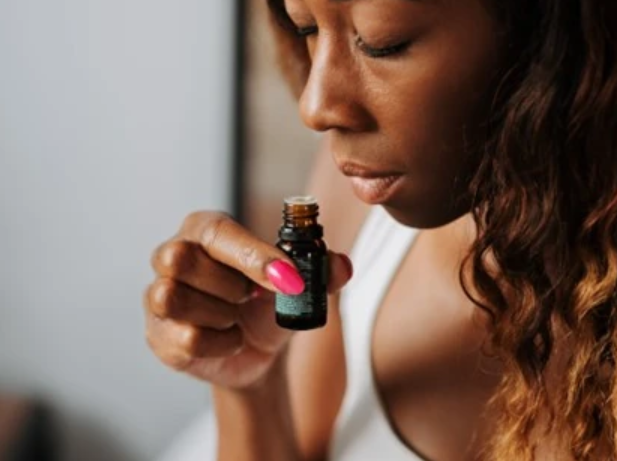
Scent is a powerful sense—it can instantly transport you to a memory, lift your mood, or create a sense of calm. That’s the foundation of aromatherapy, a holistic healing practice that uses essential oils to promote physical, emotional, and mental well-being. For women balancing the demands of modern life, incorporating aromatherapy into a daily routine can be a simple yet effective form of self-care.
Whether you need help relaxing, focusing, or simply unwinding after a long day, aromatherapy offers natural support through the power of scent.
What Is Aromatherapy?
Aromatherapy is the use of concentrated plant extracts (essential oils) to enhance overall wellness. These oils are typically inhaled, diffused, or applied to the skin (diluted with a carrier oil) to trigger therapeutic effects on the body and mind.
How Aromatherapy Supports Well-Being
1. Reduces Stress and Promotes Relaxation
- Scents like lavender, chamomile, and sandalwood are known for their calming properties.
- Inhaling these oils can lower cortisol levels, reduce anxiety, and promote a sense of peace.
- A few drops of lavender oil in a diffuser or bath can help unwind after a stressful day.
2. Improves Sleep Quality
- Aromatherapy is commonly used to treat insomnia and improve sleep.
- Oils such as bergamot, cedarwood, and ylang-ylang help relax the body and mind, encouraging restful sleep.
- Spraying a pillow mist or diffusing oils before bedtime can establish a calming nighttime routine.
3. Boosts Mood and Emotional Balance
- Uplifting scents like citrus (orange, lemon, grapefruit) and peppermint can elevate your mood and increase energy.
- These oils are especially helpful during low-energy moments or when dealing with emotional fatigue.
- Aromatherapy can enhance mindfulness and bring emotional clarity, making it a valuable tool for mental well-being.
4. Supports Focus and Mental Clarity
- Scents such as rosemary, eucalyptus, and frankincense help sharpen focus and stimulate cognitive function.
- Using these oils during work or study sessions can enhance productivity and reduce mental fog.
5. Eases Physical Discomfort
- Some essential oils have anti-inflammatory and analgesic properties that can help ease headaches, muscle tension, and menstrual cramps.
- Peppermint, clary sage, and eucalyptus are popular for topical application (always diluted) to support physical comfort.

How to Use Aromatherapy in Your Routine
Aromatherapy Jewelry – Use diffuser bracelets or necklaces to carry your favorite scents throughout the day.
Diffusers – Add a few drops of essential oil to a diffuser for a consistent, gentle scent throughout your space.
Topical Application – Combine essential oils with a carrier oil (like coconut or jojoba) and apply to pulse points, temples, or the soles of your feet.
Bath Soaks – Add oils like lavender or eucalyptus to a warm bath for relaxation and muscle relief.
Inhalation – Simply inhale the scent from your hands or a tissue for a quick calming effect on the go.

Final Thoughts
Aromatherapy is a gentle, natural way to support both physical and emotional wellness. By choosing essential oils that align with your needs—whether it’s calming anxiety, improving sleep, or lifting your mood—you can create a daily ritual that supports self-care and mental balance. Inhaling a soothing scent may seem simple, but its effects can be powerful and long-lasting.
Disclaimer: The information provided in this article is for educational and informational purposes only and is not intended as a substitute for professional medical advice, diagnosis, or treatment.

















